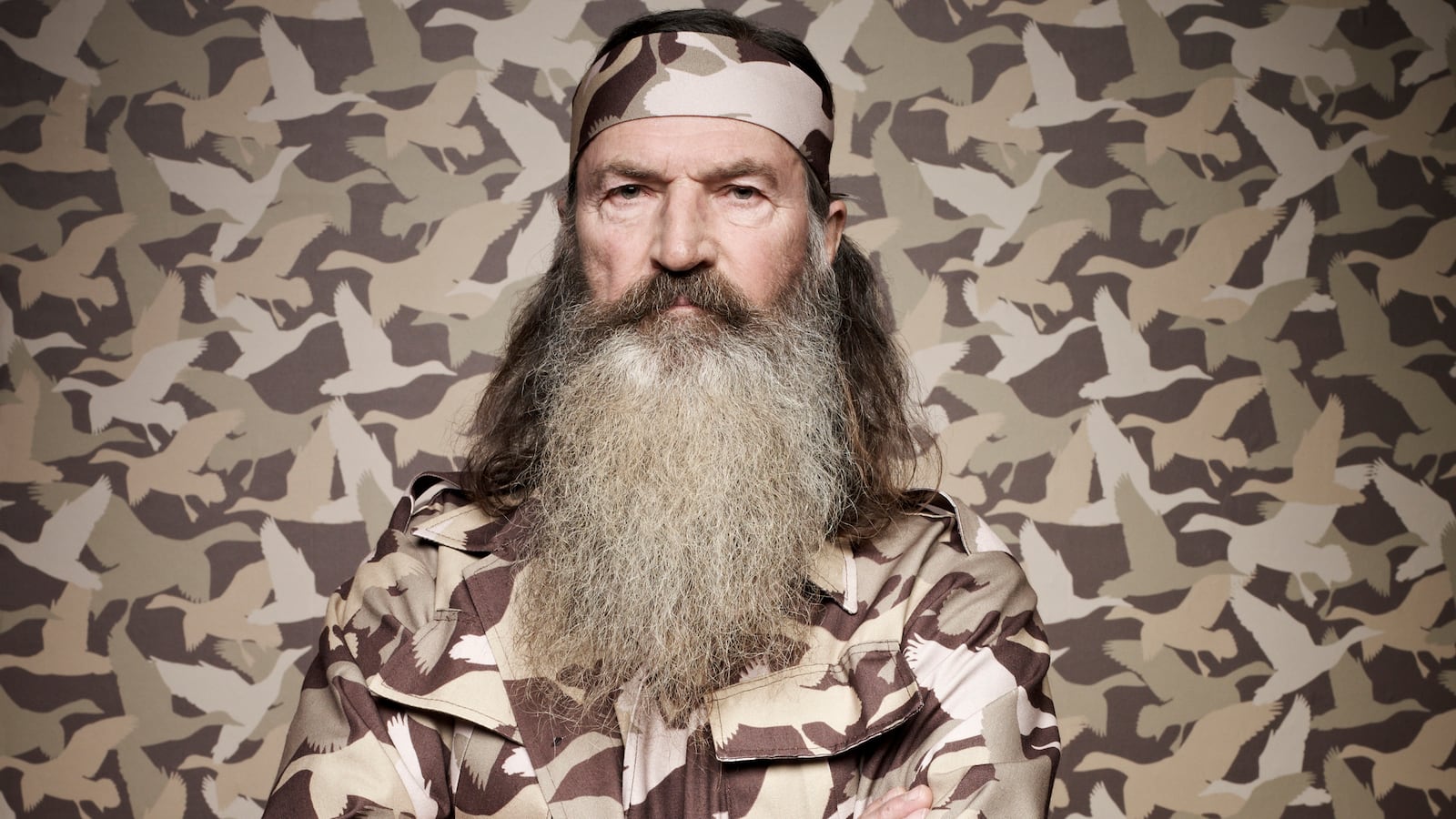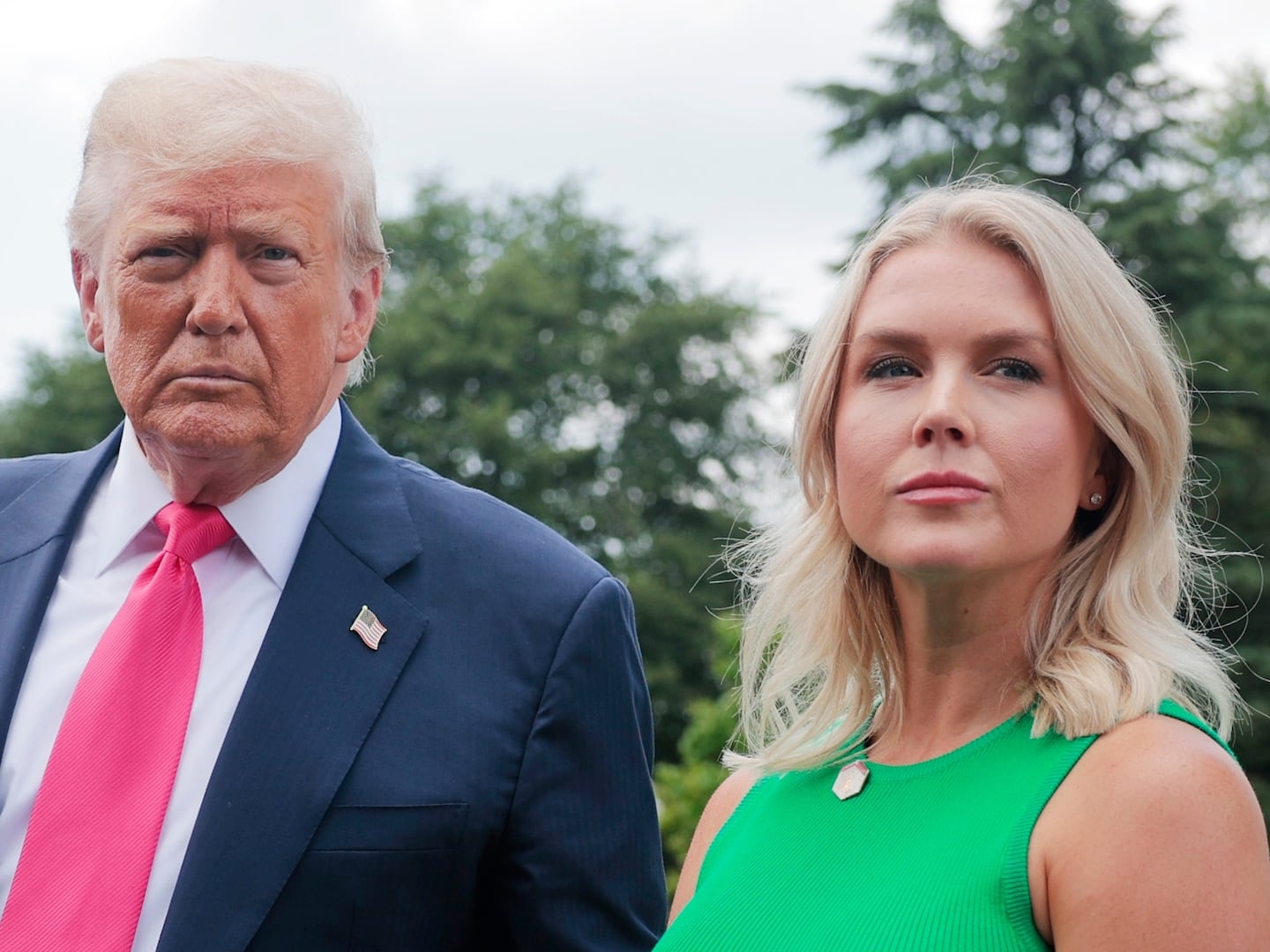When Duck Dynasty patriarch Phil Robertson opened his yap to GQ magazine, he probably didn’t anticipate the firestorm of controversy that would follow it.

He told Drew Magary: “Everything is blurred on what’s right and what’s wrong. Sin becomes fine. Start with homosexual behavior and just morph out from there. Bestiality, sleeping around with this woman and that woman and that woman and those men.”
While Robertson’s comments were immediately called out as homophobic and while some like Sarah Palin quickly jumped to his defense under the rubric of free speech, some viewers seemed surprised that their favorite cuddly Southern rednecks weren’t so cuddly after all.
That reaction was astutely mocked by Seth Rogen on Twitter, who wrote: “It's strange that A&E hired a guy for being a backwoods redneck and then were surprised when he started talking like a backwoods redneck.”
In other words: obvious thing is obvious.
Current reality TV’s entire premise has been to put people that represent a stereotype together and let them live up to that stereotype—within reason.
We’ll overlook the icky stuff to relate to the good stuff. Honey Boo Boo might be crass white trash, but she’s also sort of adorable and hilarious with a loving mother and family. Jersey Shore’s Guidos are obnoxious drunks, but Snooki’s kinda cute and tiny and the Situation seems like he’d be a good cook. The Real Housewives —any city, any season—are materialistic, plastic surgery-addicted, catty women, but at least Vicki in Orange County has an actual job.
The scrubbed version of the Dynasty clan lets Americans, especially those who might not otherwise choose to spend their time with religious fundamentalists from the South, relate to the cast. We want a glimpse inside the lives of Guidos, hicks, or gold diggers, and we want to watch them perform for our amusement. But if the Guidos or hicks or gold-diggers behave in an unsavory way that make us feel offended and uncomfortable rather than smug and self-satisfied, we’d likely shut off the TV. And nobody—least not advertisers—can have that.
“It’s commerce,” says Tim Brooks, a former network executive and TV historian, the co-author of the book, Complete Directory to Prime Time Network and Cable TV Shows, 1946-Present. “If you want to do a TV show on a widely distributed network and get a big audience there are certain rules.”
Robert Galinsky, Founder of the New York Reality TV School who coaches and trains hopefuls for shows like Survivor, Project Runway and The Voice, says: “One hundred percent of the personalities are scrubbed in the editing room and it's never for our benefit, it's for the benefit of profit. The producers scrub, the director scrubs, the pawns—I mean cast members—scrub, but the ultimate scrub-a-dub-dubber are the show and network lawyers. They have the final say and they only care about protecting the value of the network brand and advertising brand relationships involved.”
Off screen, the reality stars often behave as we might expect. Before she joined the cast, footage of Jersey Shore’s Deena Nicole Cortese was unearthed of her using the “n-word.” And Ronnie Magro of Jersey Shore went on an anti-gay rant in one of the fights that was later aired (and edited out) by MTV. He repeatedly called his opponent, “a fucking faggot” and “a fucking queer.”
But onscreen is another story. Those seven words (and a few more) made famous by George Carlin are still very much in effect.
“The network themselves have Standards and Practices that they want to adhere to for a few reasons—mainly because of advertisers. Obviously, no one want to be seen as promoting racism and homophobia and advertisers don’t want to be associated with that,” says Nicole Page, an attorney with Reavis Parent Lehrer LLP who has advised on these issues with production companies and the people who appear on reality shows such as TLC’s Best Funeral Ever and North Woods Law on Animal Planet
“The other side of it is what kind of agreement the talent are required to sign when they are selected to appear on these shows?” she says. “The are extensive provisions that say you can’t do anything to offend the public’s morals or interfere with the show.”
In that sense, Robertson’s faux pas is quite serious. “This is so disastrous—this is the biggest show A&E has ever had,” says Page.
Dog the Bounty Hunter articulated his conundrum perfectly in a racist rant which ironically explained just why America can’t see the real him and why he couldn’t risk his son going out with a black girl, because she might tell the world.
“It’s not that they’re black, it’s none of that, it’s that we use the word n***r. We don’t mean you fucking scum n***r without a soul, we don’t mean that shit. But America would think we mean that.”
On air, stars like Dog the Bounty Hunter, Brooks says, “self-censor themselves and play down things that will be antagonistic to people. It’s not a soapbox, it’s an entertainment show.”
“The trick is to show it’s really a family and they do like each other, but not to do it in a way that shows all the warts,” says Brooks.
So, a homophobic comment disguised as a joke, but not an outright slur, makes it to the tape, as it did when Joe Giudice on Real Housewives of New Jersey said his friend had a “loose butthole.” The n-word might out of bounds, but an off-color comment, racial in tone? Well, that goes in, as when Brandi Glanville of Real Housewives of Beverly Hills told Joyce Giraud, who said she couldn’t swim: “You’re black.”
One producer who worked on a major reality TV show explained, “We could put in/not put in what we want, but ultimately the network has a team that watches the show and tells us what can stay.”
Page says oftentimes networks will tell production companies, “We want outrageous but not grotesque,” she says. “What does that mean?”
Sometimes, to paraphrase the tagline of the original modern day reality show, The Real World, things sometime get a little too real. Buckwild, the MTV show which was supposed to depict teenage life in rural West Virginia, complete with off-roading, tire-swinging, beer guzzling, and gun shooting, was scrapped when one of its stars, Shain Gandee, died participating in the very activity the show was going to glorify: off-roading in the mud.
No one wanted to be reminded of that reality.
“It all points to the fact that television is really more aspirational than a mirror of every part of real life—including the bad stuff,” says Brooks. “We want to see what we can be, more than what we are.”






